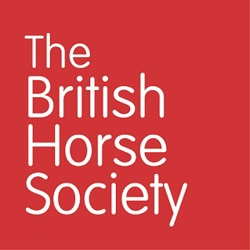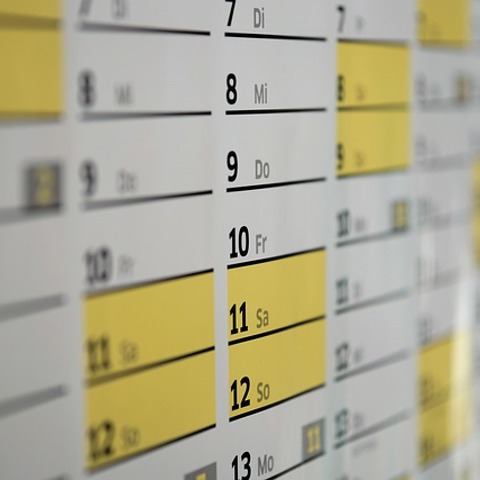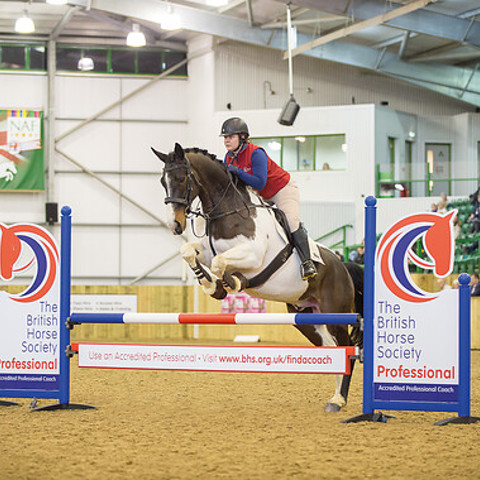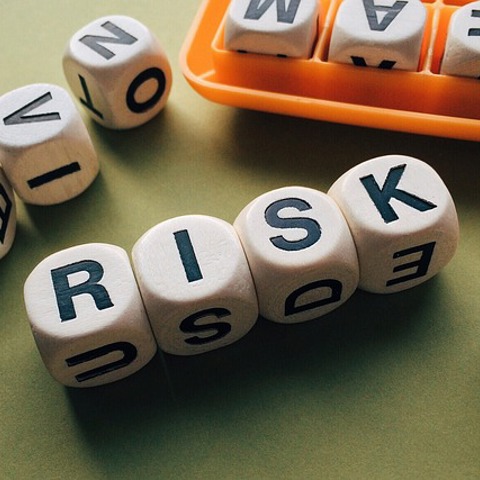The Importance of smell and taste for horses - 1 CPD
By the end of this course you will be able to:
> Review key facts on Horse Senses.
> Describe three Brain Level Processes which fuse perception from
all senses.
> Define what Categorical Perception is and the differences between
Horse and Human abilities.
> Explain what Sensory Compensation is and why it would be beneficial to be more aware of this when training horses.
> Discuss some of the reasons why it’s so important we know what is normal for each individual horse we’re working with.
> Define what Neural Fatigue refers to (term taken from Horse Brain, Human Brain by Janet L Jones, 2020).
> Discuss what a static cue is and there use in training horses.
> Summarise the concept of riding with and against the Horses brain.
> Define what Pressure and Release means.
COST - £10
£8 APC's
How all the Equine senses work together - 2 CPD
> Review key facts on Horse Senses.
> Describe three Brain Level Processes which fuse perception from all senses.
> Define what Categorical Perception is and the differences between Horse and Human abilities.
> Explain what Sensory Compensation is and why it would be beneficial to be more aware of this when training horses.
> Discuss some of the reasons why it’s so important we know what is normal for each individual horse we’re working with.
> Define what Neural Fatigue refers to (term taken from Horse Brain, Human Brain by Janet L Jones, 2020).
> Discuss what a static cue is and there use in training horses.
> Summarise the concept of riding with and against the Horses brain.
> Define what Pressure and Release means.
£10. £8 for BHS APC's.
Goal Setting for Equestrians - 2 CPD
This Course from Rider Mentality will delve into the latest research from both Psychology and Science to provide you with a greater understanding of how to effectively set and achieve Goals for both you and those your working with. The content will be useful for riders and coaches alike. The Webinar is followed up with a Quiz to check understanding and Coaches will be provided with feedback from the Quiz. Learning Outcomes By the end of the Course you will be able to: > Demonstrate the power goal setting has to help you practice better habits. > Recognise what habits are and why we have them. > Outline the components of a Habit Loop. > Recognise the role of stress in effective goal setting and habit formation. > Effectively interpret your habit cues. > Identify the difference between stopping bad habits and breaking them. > Discuss the weaknesses of relying on will power. > Outline the Science of making and breaking habits. > Discuss the concept of Delayed Gratification. > Outline the Question Behaviour effect. > Explain the scientific concept of Cognitive Dissonance. > Compare two practical Goal setting models. .
£10
£8 for BHS APC's.
Introduction to Neuro Linguistic Programming (NLP) course for Equestrian Coaches - 3 CPD
By the end of this Course you will be able to: Describe the
Foundations of NLP as well as it's basic principles and apply these to you're Equestrian Coaching which will allow you to improve your Psychological understanding of yourself as a Coach and the Clients that you work with.
Learning Outcomes for all modules can be found on the following link:
https://ridermentality.vipmembervault.com/products/courses/view/1067303
£39.99 (with feedback)
£30.00 (without feedback)
Self Compassion for the Equestrian - 2 CPD
By the end of this Course you will be able to: > Define the meaning of Self Compassion and why as an Equestrian it's such an important practice for you to adopt. As well as giving you a greater understanding of what Self Compassion really means and looks like you will also be provided with some simple ideas of ways you can include it in your everyday life. It will also look into how being around our horses can help and the role they have to play. Learning Outcomes > Provide a definition of Self Compassion. > Discuss why Self Compassion is important for you as an Equestrian. > Describe the three core elements which make up self compassion. > Identify practical ways to include this in your everyday life. > Explain how being around horses can help and the role they have to play. > Discuss the differences between self kindness and self judgement. > Discuss Tend and Befriend instinct.
> Describe the mammalion caregiving system > Recognise the common human experience > Develop mindfulness practices. > Discuss the psychological scale to measure self compassion. > Discuss the difference between self esteem and self confidence > Explore the physical benefits of practicing self compassion. > Discuss the potential down sides of self compassion.
£10
£8 for BHS APC's
The Importance of smell and taste for horses - 2 CPD
By the end of the course you will
be able to:
> Recognise the basic anatomy of the Horses nose.
> Describe the Vomeronasal Organ and it’s function.
> Define what Pheromones are and give an example of there function. > Explain the Horses Flehmen response.
> Discuss smell and perception in Horses.
> Summarise the similarities between Horse and
Human smelling ability.
> Discuss how Horses rely on their sense of smell.
> Recognise how important allowing your Horse to sniff their environment is.
> Explain the process commonly seen when Horse’s meet and how this can be managed in the safest possible way.
> Describe how Horses taste and why sweet and salty
flavours are important.
> Discuss how taste should be considered when Bitting
horses.
> Summarise the Do’s and Don’ts when considering our horses smell and taste.
£10
£8 for BHS APC's
How Horses hear - 2 CPD
Learning Outcomes By the end of the module you will be able to:
>Recognise the basic anatomy of the horses ear.
> Explain the differences between the loudness Horse and Human are able to hear.
> Describe what Pitch is and the differences between what Horse and Human can hear.
> Discuss how Horses interpret sounds and become used to those present in their familiar environment.
> Summarise how Horse’s hearing helps them to be social creatures.
> Explain what sound localization is.
> Define why Horses do not appear to be good at
sound localization.
> Explain how Horse and Human hearing changes as they age.
> Discuss how Horses react to different types of noises in their environment and how desensitisation can be a useful training tool when getting them used to unfamiliar noises.
> Describe how you can effectively use different tones of
voice when training Horses.
£10
£8 For APCs
How Horses see - 2 CPD
Learning Outcomes By the end of the course you will be able to:
> Explain in basic terms the connection between the Eye and Brain for both Human and Horse.
> Describe Visual Acuity and how it differs from Human to Horse.
> Define the horses range of vision. >
Explain why horses are so sensitive to movement in relation to Peripheral Motion.
> Identify where the horses Blind Spots are and discuss how you might consider these when working with them.
> Describe how Focus differs for Human and Horse.
> Define how Human and Horse colour vision differs.
> Explain what the terms Dichromatic and Trichromic vision mean in relation to Horse and Human.
> Discuss how Horse and Human night vision compares and how you might consider Horses night vision ability in your management of them.
> Summarise the connection that exists between the Horses eyes and how you might consider this when training them in a new Exercise
£10
£8 For APCs
How Horses Process the World - 2 CPD
By the end of this Course you will be able to: Effectively compare some of the differences between how Horse and Human process the world and more easily recognise when Horses are being humanised and the detrimental effects this can have. This will allow you to understand horses better and improve the relationships you have with them.
Learning Outcomes are available for all modules on the following link:
https://ridermentality.vipmembervault.com/products/courses/view/1135763
£39.99
Horse and Rider Tension - 2 CPD
By the end of this Course you will be able to: > Discuss how we can
combat Rider Tension through the development of resilience and strategies in relation to our body awareness, rider position, mindset and breathing. > This will provide you with the practical tools to be the best leader and rider for your horse in any situation. Learning Outcomes By the end of the course you will be able to:
> Discuss how tension manifests itself for both human and horse.
>Identify how the rider’s tension affects the horse
> Recognise when our horses are working free from any tension.
> Discuss the differences between positive and negative tension.
> Develop an understanding of the correct Horse and rider
mindset.
> Discuss potential solutions to problems caused by Horse and Rider
tension.
£10
£8 for APC's
Horse and Rider Mindset - 2 CPD
By the end of this Course you will be able to:
> Identify how having the right mindset for both Horse and Rider can allow you to achieve your chosen outcomes more consistently and with greater confidence. Learning Outcomes By the end of this Course you will be able to: > Discuss practical strategies to improve your mindset and confidence.
> Identify how improving your understanding of Horse
Behaviour can improve the relationship with your horse.
> Develop a basic
understanding of the Unconscious Mind.
> Develop a basic understanding of Horse
Behaviour including how they gather information from their senses.
> Identify
common Horse Body Language signals.
> Develop the use of various practical
strategies to improve the relationship with your mind.
£10
£8 for BHS APC's
TIME: Ongoing as available on demand.
An Introduction the Unconscious Mind for Equestrians - 1 CPD
By the end of this Course you will be able to:
Develop a basic understanding of the Unconscious Mind particularly in relation to your Equestrian Life. You will understand how this can help us communicate with ourselves and others better.
Learning Outcomes
By the end of the module you will be able to:
> Compare the differences between the Conscious and Unconscious mind.
> Describe the basic functions of the Unconscious mind.
> Identify how to communicate effectively with your Unconscious mind.
> Describe how all habits are created and maintained.
> Summarize the process of a Habit moving from the Conscious to Unconscious mind as it's being formed.
> Define how memories and emotions are stored in the Unconscious mind.
> Describe how memories containing unresolved negative emotions can be re - presented for resolution by the Unconscious mind and the effects this might have depending on timing.
> Discuss strategies to cope with these memories being re - presented.
> Discuss why the Unconscious mind responds so well to metaphors.
> Recall common Belief cycles Equestrians get stuck in.
> Explain how our minds can run on autopilot.
> Complete an Exercise designed to make you more conscious of your Unconscious mind.
£10
£8 for APCs
How could understanding my horse better help to improve my confidence? - 1 CPD
By the end of this Course you will be able to:
>Be more mindful of how by understanding our horses better we can understand ourselves better and more easily address any confidence issues.
> Develop greater awareness of rider tension and how our tension effects our horse.
Learning Outcomes:
> Discuss the relationship we have with our horses and how this could be improved including practical examples.
> Recognize why horse's make such good therapists.
> Identify some of the life skills we can develop by being around our horses.
> Outline strategies to help improve you and your horse's confidence.
£10
£8 for APCs






